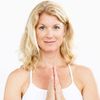Suffering is a loaded term.
In Buddhism, suffering — or rather: how not to suffer — is the crux of the practice.
Many people associate suffering with physical pain, with the lack of a place to live, or with starvation, and therefore think that they do not suffer. I have a comfortable house, I have enough to eat, I have a job, I have a loving family, are all thoughts that may make you believe that you do not know suffering, or at least that you do not have any reason to suffer.
Suffering, however, also includes the mental experience of unease or discomfort. Now this is something that everyone can relate to.
Especially during times of extraordinary hardship — like during this current pandemic — the part of us that suffers most is our mind. Of course, physical pain can be debilitating. However, it is possible to experience pain as simply a physical sensation. Pain becomes suffering when we start to think: why is this happening to me? Will I get better? How long is this going to last? I don’t want to die!
When you find yourself in a challenging situation you can experience that situation as it is: Wow, this feels challenging. I am noticing fear. I am noticing anger. I am noticing resistance. I am noticing [fill in the blank].
The suffering comes from not allowing the situation to be what it is, and from not accepting that we do not have all the answers. We like to know. We like to understand. We like there to be a reason. When we do not have anything to hold onto our mind freaks out, and it will do anything to find some solid ground. By that time it is no longer the situation at hand, but the unknown that causes the discomfort in our mind.
And therefore we suffer.
We are conditioned to choose pleasure over pain. We want recognition, not blame. We want to understand, not be confused. So when the mind suffers, we will do whatever it takes to make that stop — even when this is all happening subconsciously. So when we do not know, and we cannot find clear and concrete answers, we will start to make things up. Anything better than the unknown!
Better yet: if we can blame someone for our confusion we no longer have to suffer. We now can focus all our energy on this person who is the cause of our misery. Let someone else feel the pain, as long as it is not me.
It is therefore not surprising that during a pandemic (or after a terrorist attack), when there are so many unknowns, when there doesn’t seem to be a reason for what has happened, people come up with stories to ease their mind. In extreme cases these stories lead to conspiracy theories. The mind is so much more at ease when we can blame someone else for the situation we are in, and have an explanation for it too.
Don’t just sit there, do something!
We are much better served, however, by not doing something, but to just sit there. As uncomfortable or scary as it may be, can you simply pause and recognize your desire to know, your need to understand, without acting on it?
I want to know, but I don’t know. It is ok to not know. I want to understand, but I don’t. It is ok to not understand. I am aware of my unease. It is ok to feel uneasy.
When you observe your thoughts and feelings, you may notice something happening that is almost magical: you are creating space.
When there is space the need to do something is less acute. The immediacy of the desire softens. Without the pinch of longing to change the situation, the situation becomes more bearable. This bearable situation may still be uncomfortable, yet you will no longer feel like the victim of it.
When you can take ownership over your feelings, rather than over your situation, your life becomes much easier to bear, and you will no longer "burden" others with your own suffering. This will lead to skillful resilience, and to the full understanding that pain is unavoidable and suffering is optional.
This is one of the few things that is truly worth knowing.
Guest post by studio BE mindfulness teacher Marije E. Paternotte, E-RYT 500.
Marije E. Paternotte offers a unique approach to yoga; balancing movement and breathing practices of traditional Hatha and Tibetan Yoga with the stillness of the Taoist Yin Yoga, awareness of Chi flow, and an emphasize on mindfulness and the Buddha Dharma. Her teaching style is understated and compassionate. She has the ability to present complex concepts, and an in-depth knowledge of yogic anatomy and philosophy, in a simple and approachable way, for which she is loved by beginning and advanced practitioners alike.
Marije was born and raised in Amsterdam where, after her training to be a professional ballet dancer, she studied law and worked as a corporate lawyer. A yoga retreat in Bali led her to the United States where she took her first yoga teacher training. She currently lives in a small beach town in New Jersey with her husband, and teaches yoga workshops, retreats, and teacher trainings around the world, as well as locally. Marije is also a guest teacher at the renowned Kripalu Center for Yoga & Health in Massachusetts and the Mandali Retreat Center in Italy.
Marije received both her foundational and professional level yoga teacher certification at the Kripalu Center, and is certified to teach Yin Yoga and Mindfulness by Sarah Powers’ Insight Yoga Institute.
Feature photo by Fiona Smallwood

